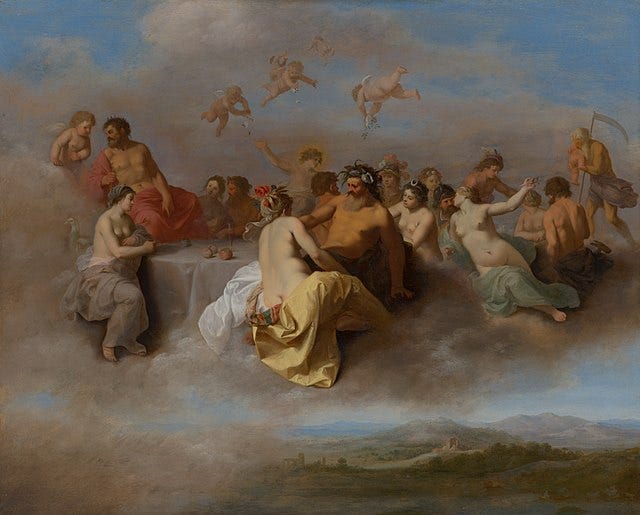May No God Remember Your Name
By Yásnaya Aguilar1
I would like to begin by making a concession: behind the implementation of the Maya Train, one of the most announced projects by the new government of Andrés Manuel López Obrador, the best intentions lay the foundations for its execution.
After centuries of abandonment in which the Mayan people have been dispossessed and pushed into a process of indolent pauperization, the new government finally intends to implement a comprehensive project whose main objective is to create "social welfare for the population living in the Mayan area" and "integrate territories of great natural and cultural wealth to tourism, environmental and social development in the region" as described on the project's official website.
Why would anyone object?
The inclusion and development of the Mayan peoples of the peninsula are necessary if the new government intends for social justice to reach the most disadvantaged sectors in the history of this country.
It would not be fair to leave them out of the Fourth Transformation project. I make this concession in order to start from a common surface that allows me to expose points that seem problematic to me in the discussion that has taken place around the Mayan Train.
Many other people, openly against the execution of this project, have presented data, reports and arguments to discuss all its implications and have even used legal instruments such as the Constitutional Injunction (amparo) to stop its implementation. I will do no such thing here.
Respecting the same initial concession, I will avoid discussing the fact that Alfonso Romo, current head of the office of the Presidency of Mexico, founded a company that has obtained concessions to exploit the largest amount of groundwater in the Yucatan Peninsula.
What are the implications and possible relations of this with the Mayan Train?
None of this will be questioned because, I insist, for the purposes of these lines, it is granted, at least for a moment, that this project has been created with the best of intentions: social welfare, the inclusion of a vulnerable sector long excluded from the country's development.
With such good intentions, it even seems foolish to ask that the indigenous peoples involved be consulted following the guidelines of Convention 169 of the International Labor Organization, which requires consultation when the territories of indigenous peoples may be affected by a project. Having conceded the above, I would like to argue that the best intentions behind the execution of the Tren Maya are, in fact, the basis of the problem.
One of the most common arguments in the debate focuses on the absence of the State as the reason for the current plight of indigenous peoples.
State neglect, which has always kept them excluded from the development of the rest of the country, has caused the poverty and underdevelopment of the indigenous population in general and the Mayan population in particular.
However, I would like to argue that it has not been the absence of the State that has caused the pauperization of the indigenous peoples, but precisely the opposite. It has not been the exclusion of these peoples from the ideal of development proposed by the government that has impoverished them, but the violent processes of inclusion.
The Mexican Constitution itself is based on the inclusion of peoples and nations in a criollo project that was never consulted. The fact that the very diverse indigenous peoples have been encapsulated within the Mexican State was not the result of a confederate pact between these diverse nations and cultures but of the imposition of the project of a privileged minority. For this reason, because indigenous peoples pre-existed the creation of Mexico as a country, whatever the State intends to do in their territories must be consulted.
The so-called second transformation of Mexico's public life, as the current president calls it, was one of the main causes of the poverty that indigenous peoples have suffered. In the middle of the 19th century, it is estimated that more than half of the Mexican population was indigenous and in that context, a large part of the towns had communal lands.
As an effect of the Reform Laws and especially the Lerdo Law, communal property was hit hard and many indigenous communities suffered catastrophic losses of property and land. In many cases they even had to buy back their own lands when they could, but in general this was one of the major drivers of the pauperization of the indigenous peoples.
In response to this problem generated by the State due to the concentration of land in the hands of a few, the third transformation was implemented as one of the most aggressive projects against languages, culture and the very existence of indigenous peoples by promoting their linguistic and cultural integration.
A large part of the post-revolutionary project was aimed at including and integrating what was left of the indigenous peoples into a desirable ideal: the Mexican mestizo, a single cosmic race, the bronze race. This integration and this inclusion in terms of state power are responsible for the current situation of Mexico's indigenous peoples.

The Mayan Train, from its birth, is not Mayan, it is the State dictating once again, once more, which are the solutions to the problems of the indigenous peoples. Logically, the project that the state is proposing is not the only possible solution to the problems faced by the indigenous population.
The Mayan population is not in its current situation because of the lack of a train, but because of the structural violence that has been exercised over it. Is it possible to think of other alternatives?
Would it not be better to dismantle the system of oppression that produces poverty in the indigenous peoples? Would it not be better, in any case, to return the lands historically dispossessed, to stop the businessmen who monopolize water and territory?
Many peoples and individuals who belong to the Maya population have proposed other ways to build a path toward a dignified life, and should be considered within an effort for self-determination that cannot be exercised in consultations that last a very short time, such as those implemented by the government.
In an interview with Heriberto Paredes for Pie de Página, Romel González, the legal advisor of the Consejo Regional Indígena y Popular (CRIPX), the organization from which an injunction was filed against the execution of the Tren Maya, gives an account of the colonialist vision of pretending that this project is the only option for the peninsula's problems:
"We are seeing from the beginning a colonialist viewpoint, 'I come from the city, I come with all the knowledge and I come to you to end poverty with a train'.
It is a modern type of colonialism, as Comte and the positivists used to say,
'I am coming to bring you the organization, I am coming to bring you progress, I am coming to bring you civilization'.
The discourses of inclusion show from the outset an implied power relationship: those who speak of inclusion show that they have the power to do so.
The directionality of inclusion is eloquent: who intends to include whom?
The discourses of inclusion are opposed to the autonomy and self-determination of indigenous peoples enshrined, paradoxically, in the Mexican Constitution itself at the beginning of the 21st century.
Every time the State has turned its eyes to indigenous peoples in the name of development, catastrophe has come very often.
In the name of modernity and development of the country, in 1954, the Mexican State displaced approximately 20,000 Mazatecos for the construction of the Miguel Aleman Dam in Oaxaca and between 1974 and 1988 it displaced 26,000 Chinantecos for the construction of the Cerro de Oro Dam.
Both projects impoverished the population and generated a series of terrible affronts despite the discourse of progress, welfare and development in which they were involved. In other cases, State intervention through assistance has also had the effect of creating and strengthening clientelistic networks that make it difficult to exercise autonomy and self-determination.
The State creates problems through its intervention and its integrationist pretensions, which have been an ethnocidal exercise of erasing the amestizos, and pretends to solve these problems with more projects based on inclusion.
All of this also calls into question the idea of progress and development that has not been discussed when talking about the Mayan Train. The different ways of understanding "quality of life", "dignified life", "good living" are often opposed to the notions of progress and development that the state discourse handles. In an honest exercise, it would be necessary to discuss what is understood by development and which are the welfare indexes to be considered from different and contrasting points of view, cultures and conceptions. This has not happened.
At most, consultations have been made to comply with a necessary requirement without observing the standards of Convention 169 as it should be. These consultations do not specify the methodology and justification for determining the consultation units (not all indigenous peoples are organized in a communitarian manner, nor are all ejido assemblies representative of an indigenous population, to cite an example), nor have they provided the consultation units with the information for and against that is a necessary condition for an adequate consultation.
In the best assembly traditions, it is customary to listen to those who are in favor of a proposal and immediately after those who are totally against it, both positions have the same attention, the same time of exposition and the same resources.
In the consultation on the Mayan Train this necessary condition has not been fulfilled so the results of the consultation are, by origin, misleading. It would be necessary to listen to the most fierce detractors, as well as to those who are enthusiastic about the official project, to those who have fallen under the clientelist networks that the state has created over time, and to those who propose other ways to address poverty in the peninsula.
Once the information has been heard and discussed in both directions, decision making can become an honest exercise based on good faith. To argue that no Mayan communities have demonstrated against the train project, if it were true, becomes a fallacy, the lack of opposing positions could be due to many factors, among them that sufficient information with arguments for and against has not been guaranteed. Without sufficient prior information and clear determinations of the units to be consulted, the results of the consultation are simply not reliable.
Even granting that the State wishes to execute the Tren Maya project for seemingly noble reasons such as including indigenous peoples in the development of the country to lift them out of poverty, these reasons evidence the same mechanism by which, in all of Mexico's so-called transformations, indigenous peoples have been impoverished and their lands and lives exposed to the interests of capitalism through vertical state projects.
Indigenous peoples do not need greater state presence, many of them struggle precisely to manage their greater absence because that would mean strengthening autonomy and self-determination. In the peninsula there are projects and initiatives of their own that propose other ways to confront the problems that have their origin in the historical oppression of the state. Before proceeding, it would be necessary to listen.
Inclusion for indigenous peoples has meant death and pauperization. Sophia de Mello, a brilliant Portuguese poet enunciates in a poem a good wish for someone she loves:
"May no God remember your name"
recites the verse that can be read in the light of what happens every time the gods of classical tradition remember those who inhabit the earthly plane: Io turned into a calf by the jealousy of Hera, Daphne turned into a tree as the only way out before the sick passion of Apollo, the terrible and bloody Trojan war unleashed by Hera, Athena and Aphrodite in their dispute for the apple of discord.
With such evidence, I understand Sophia de Mello's verse as the expression of the best of wishes: it is better "that no God remembers your name".
Faced with the evidence of the effects of the State every time it remembers the name of the indigenous peoples in the implementation of its great projects, it only remains to also wish the best: that no state remembers your name. It is best this way.










